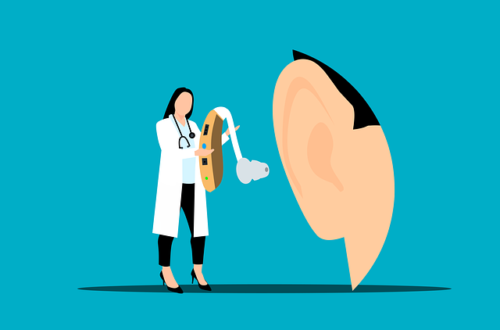Cardiology Specialists: Masters of Heart Health

When it comes to matters of the heart, there’s no group more skilled and experienced than cardiology specialists. These medical experts are the true masters of heart health, dedicated to diagnosing, treating, and preventing conditions that affect this vital organ. With their extensive knowledge and specialized training, cardiology specialists help individuals maintain optimal cardiovascular health and quality of life.
By staying at the forefront of medical advancements and utilizing cutting-edge technology, cardiology specialists can provide accurate diagnoses and personalized treatment plans for a wide range of heart-related conditions. Whether managing high blood pressure, addressing chest pain, or performing life-saving procedures such as angioplasty and bypass surgery, these specialists have the expertise to handle even the most complex cases.
Importance of Cardiology Specialists in Heart Health
Cardiology specialists play a crucial role in safeguarding heart health. They are at the forefront of cardiovascular medicine, constantly expanding their knowledge and skills to provide the best possible care for their patients. These specialists are trained to assess, diagnose, and treat a variety of heart-related conditions, ranging from common issues like hypertension to more complex cases such as heart failure or congenital heart defects.
Their expertise allows them to accurately identify the underlying causes of heart conditions through a combination of advanced diagnostic testing and a thorough understanding of cardiovascular physiology. This enables them to develop personalized treatment plans tailored to each patient’s specific needs.
Common Heart Conditions Treated by Cardiology Specialists
Cardiology specialists are experienced in treating a wide range of heart conditions. Some of the most common conditions they encounter include:
Coronary Artery Disease
Coronary artery disease occurs when the blood vessels that supply the heart muscle with oxygen and nutrients become narrow or blocked due to the buildup of plaque. Cardiology specialists are skilled in diagnosing and managing this condition, often utilizing interventions such as lifestyle modifications, medication, and, in severe cases, invasive procedures like angioplasty or coronary artery bypass grafting.
Arrhythmias
Arrhythmias are abnormal heart rhythms that can range from harmless to life-threatening. Cardiology specialists are trained to diagnose and treat various types of arrhythmias, including atrial fibrillation, ventricular tachycardia, and bradycardia. They may recommend lifestyle changes, medications, or procedures like cardioversion or ablation to restore normal heart rhythm.
Heart Failure
Heart failure occurs when the heart is unable to pump blood efficiently. Cardiology specialists are skilled in managing heart failure by prescribing medications, recommending lifestyle modifications, and closely monitoring their patients to prevent complications and improve their quality of life. In advanced cases, they may consider interventions such as heart transplantation or implantation of a ventricular assist device.
Diagnostic Procedures Performed by Cardiology Specialists
Cardiology specialists utilize a variety of diagnostic procedures to accurately assess heart health and identify underlying conditions. These procedures may include:
Electrocardiogram (ECG/EKG)
An ECG is a non-invasive test that records the electrical activity of the heart. It helps cardiology specialists evaluate the heart’s rhythm and detect any abnormalities.
Echocardiogram
An echocardiogram uses ultrasound waves to produce images of the heart’s structure and function. This test allows cardiology specialists to assess the heart’s chambers, valves, and overall pumping function.
Stress Test
A stress test evaluates the heart’s response to physical exertion. It helps cardiology specialists assess cardiovascular fitness, identify potential blockages, and diagnose conditions like coronary artery disease.
Treatment Options Provided by Cardiology Specialists
Cardiology specialists employ a range of treatment options to address heart conditions and improve overall cardiovascular health. These treatment options may include:
Medications
Cardiology specialists often prescribe medications to manage heart conditions. These may include medications to control blood pressure, lower cholesterol levels, regulate heart rhythm, or improve heart function.
Lifestyle Modifications
Cardiology specialists emphasize the importance of lifestyle modifications in promoting heart health. To reduce the risk of heart disease, they may recommend changes in diet, regular exercise, smoking cessation, stress management, and weight management.
Invasive Procedures
In certain cases, cardiology specialists may recommend invasive procedures to treat heart conditions. These may include angioplasty, stent placement, bypass surgery, or implantation of devices such as pacemakers or defibrillators.
The Role of Cardiology Specialists in Preventive Care
Cardiology specialists play a vital role in preventive care, focusing on identifying risk factors and intervening before serious cardiac events occur. They educate patients about the importance of maintaining a healthy lifestyle and provide guidance on managing conditions such as hypertension, diabetes, or high cholesterol.
Regular screenings and check-ups are essential in preventive care. They allow cardiology specialists to detect early signs of heart disease or risk factors that may lead to cardiovascular complications. Addressing these factors promptly can help individuals proactively protect their heart health and minimize potential complications.
How to Find a Qualified Cardiology Specialist
Finding a qualified cardiology specialist is essential for receiving top-notch care. Here are some steps you can take to find the right specialist for your heart health needs:
- Ask for recommendations from your primary care physician or other healthcare professionals.
- Research the credentials and experience of potential cardiology specialists.
- Read patient reviews and testimonials to gain insights into the quality of care provided.
- Consider the location and accessibility of the specialist’s practice.
- Ensure that the specialist accepts your insurance or offers affordable payment options.
By taking these steps, you can find a highly skilled cardiology specialist who will provide comprehensive care and help you maintain optimal heart health.
Frequently Asked Questions About Cardiology Specialists
Q: What is the difference between a cardiologist and a cardiac surgeon?
A: Cardiologists specialize in diagnosing and treating heart conditions using medication, lifestyle modifications, and non-invasive procedures. Cardiac surgeons, on the other hand, perform surgical interventions to treat heart conditions, such as bypass surgery or valve replacement.
Q: How often should I see a cardiology specialist?
A: The frequency of visits to a cardiology specialist depends on your individual health needs. If you have a heart condition or risk factors for cardiovascular disease, your specialist may recommend regular check-ups to monitor your heart health.
Q: Can I consult a cardiology specialist even if I don’t have any symptoms?
A: Yes, it is advisable to consult a cardiology specialist for routine check-ups, especially if you have risk factors for heart disease such as high blood pressure, diabetes, or a family history of cardiovascular conditions. Preventive care is essential in maintaining heart health.
Benefits of Consulting a Cardiology Specialist for Heart Health
Consulting a cardiology specialist offers numerous benefits for your heart health:
- Specialized Expertise: Cardiology specialists have extensive knowledge and training in diagnosing and treating heart conditions, ensuring that you receive the highest level of care.
- Personalized Treatment: Cardiology specialists develop individualized treatment plans tailored to your specific needs, considering factors such as your medical history, lifestyle, and preferences.
- Cutting-Edge Technology: Cardiology specialists stay up-to-date with the latest advancements in cardiovascular medicine and utilize state-of-the-art technology to provide accurate diagnoses and effective treatments.
- Preventive Care: Cardiology specialists focus on preventive care, helping you identify and address risk factors before they lead to serious heart conditions.
- Improved Quality of Life: Cardiology specialists help improve overall quality of life and longevity by effectively managing heart conditions and optimizing cardiovascular health.
In conclusion, cardiology specialists are essential in maintaining heart health. Their dedication, skill, and commitment to providing comprehensive care make them invaluable in the fight against cardiovascular diseases. By consulting a cardiology specialist, you can ensure that your heart health is in the hands of a true master of the field.



